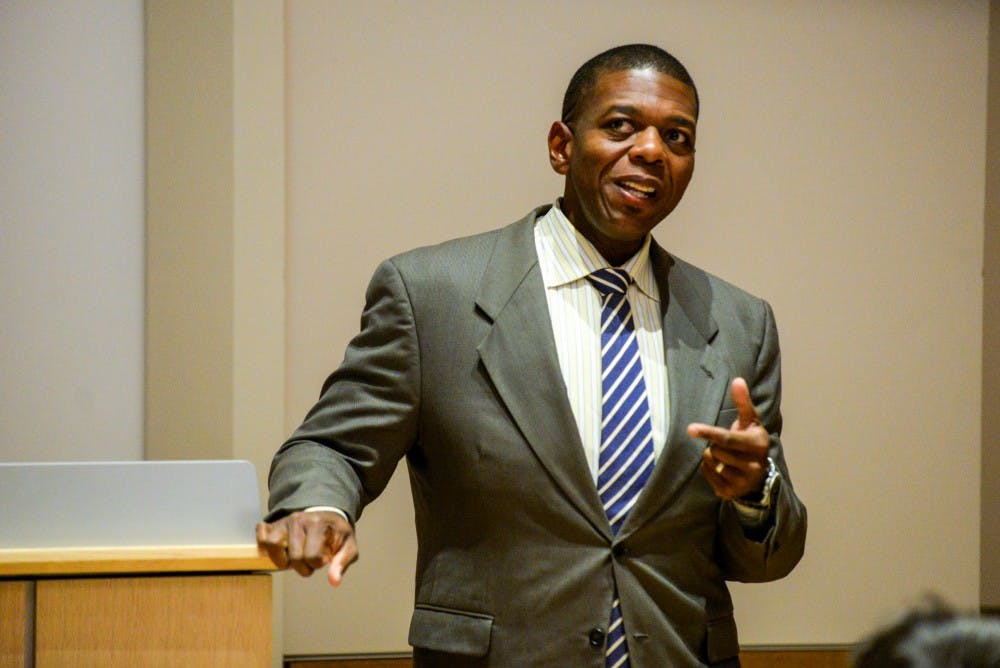Members of minority groups in the Republican party emphasized the importance of the youth vote at a Duke College Republicans event Wednesday.
Titled “Diversity in the GOP,” the event featured discussions about how the principles of the Republican party unite its diverse constituents as well as the importance of long-term commitment and outreach in developing relationships with communities. Speakers for the event included Durham GOP chair Immanuel Jarvis, Republican National Committeewoman Ada Fisher, College Republican National Committee chair Alex Smith and CRNC executive director Gus Portela.
“The Democrats like to divide people by their identity,” said junior Colin Duffy, chair of DCR. “Republicans unite on shared principles. These principles are personal liberty, limited government and the ability to have and pursue success however you like.”
During the event, speakers acknowledged current discontent toward the Republican Party but refrained from speaking on current controversies, instead focusing on their long-term vision.
Fisher—who identifies as a black, female and Jewish constitutionalist—explained her role in supporting the Republican Party of North Carolina, noting that the state has steadily grown its Republican population over the years. Black citizens in North Carolina, however, have shifted their affiliation toward the Democratic Party in the last few years, such that there were 50,000 registered black Republicans in 2008 and now there are only 35,000.
Fisher said that many black people have historically supported Republican ideas. She provided the example of gun control after the Civil War when black people would scare off assailants from the Ku Klux Klan with their personal firearms.
“Gun control for black folks is sort of an oxymoron. There are more morons talking about it than anything else,” she said, drawing a laugh from the audience.
Fisher emphasized how Republicans make an effort to include the views of underrepresented groups, such as young voters, and will continue to do so.
“People say of Republicans that we don’t care, that we’re not listening or we’re not hearing what this generation is saying,” Fisher said. “This generation has changed—it doesn’t mean they’re right, and it doesn't mean they’re wrong.”
Smith and Portela echoed Fisher’s sentiment, adding that their organization has worked to build relationships with student groups in several states, including crucial swing states such as Florida and North Carolina. Building more personal relationships, they said, has a stronger impact on the community than the electoral strategies employed by Democrats, which they described as short-lasting and insincere.
Jarvis, an African American, said that his party has also taken a more constructive approach, establishing outreach initiatives across the county such as food drives and after-school tutoring programs.
Although Jarvis hopes for his party to win more votes in Durham in the coming years, he said he believes their approach will be more self-sustaining, since current Republicans will likely spread their conservative views to the next generation.
“I think that changing the hearts of my group of people takes longer,” he said. “We have to work today understanding that we may not see the results for years. I don’t want just your vote, I want your heart.”
Get The Chronicle straight to your inbox
Signup for our weekly newsletter. Cancel at any time.

